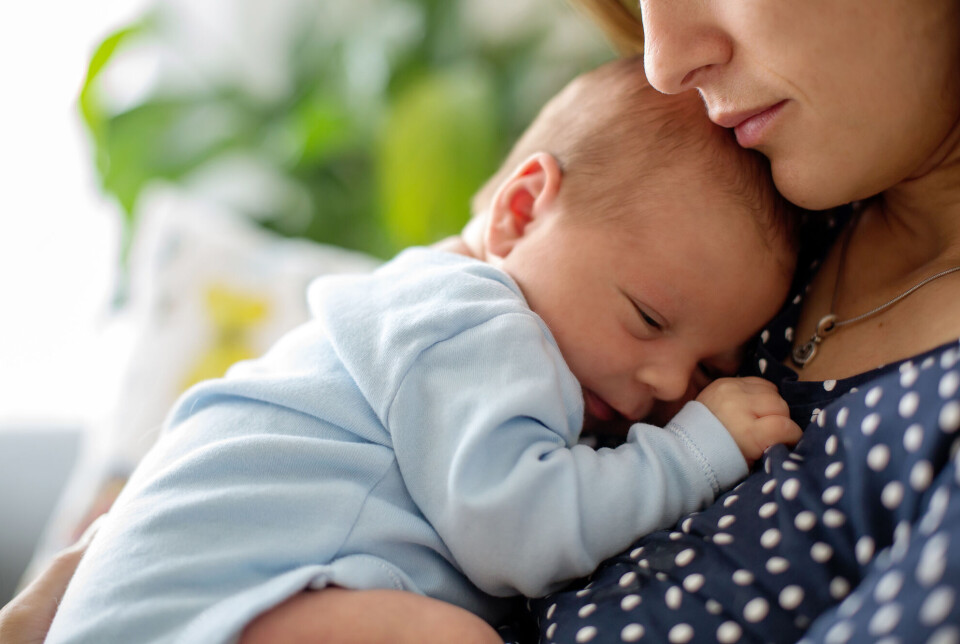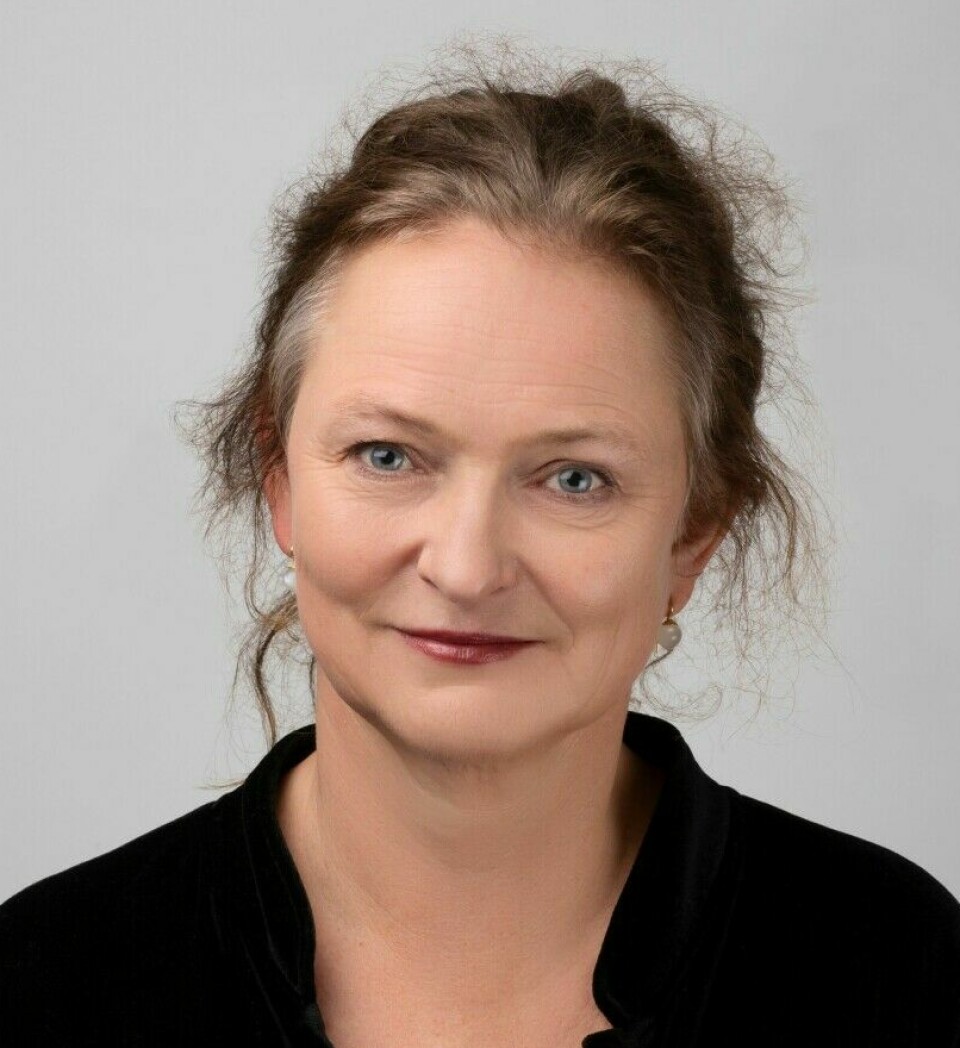
Why parents' mental health is important for the baby
Scientists used to believe that a baby's brain was almost completely developed already at birth. Now they know better. But experts say this important, new knowledge has not been adequately taken into account.
The first period of an infant’s life is absolutely fundamental for the development of the baby's brain, according to recent research. A number of research articles have revolutionized understanding of the newborn’s brain and the new mother and father.
A newborn baby has most of its brain cells at birth.
Not yet fully developed, however, are the contact points – or synapses – between the brain cells.
These synapses form the basis for the brain’s maturing. They are completely dependent on communication and stimulation from their surroundings.
Einar Bryne, a senior physician in paediatric rehabilitation at the Hospital in Vestfold, presented this information during a meeting at the Arendalsuka political gathering earlier this year.

“Synapse development requires interaction between children and parents. Parents' mental health is therefore especially important for the child in its early growth.”
Feelings have been downplayed
Clinical psychologist Gro Vatne Brean points out that we have long known that women have strong emotional reactions in connection with pregnancy and childbirth – think postnatal tears and brain fog.
“These reactions have often been downplayed,” she says.
Gro Vatne Brean sits on the board of directors of the Norwegian organization ‘1001 dager’ (1001 days), which will present the new findings to the public and politicians.
Today scientists know that a lot of important things happen in the brain of a new mother that change her brain significantly.
This new field of research has made great bounds since researchers have gained access to advanced imaging technology.
Sense of smell is hugely important
Are Brean, a specialist in neurology and former senior physician at Oslo University Hospital, Rikshospitalet, shared a little about this new information during the meeting in Arendal in August.
Before scientists were able to look inside a living brain, they could only study the brain in animal studies. In these studies they discovered that smell is incredibly important in the connection between mother and child.
It turns out that the olfactory bulb in the brain undergoes a huge reorganization, says Brean.
“If you inject oxytocin, often called the ‘love hormone,’ into the olfactory bulb in the brain of a sheep, it starts behaving like a mother within 30 seconds.”
For obvious reasons, cutting out the olfactory bulb in humans and studying it under a microscope would be a bad idea, but Brean thinks it would be strange if smell weren’t important in this phase for humans too.
Looking inside the brain in real time

Today, it is possible to see into the brains of new mothers in real time using advanced imaging techniques.
Studies have documented the strong emotional attachment to the child that occurs in the mother's brain.
A lot happens in the amygdala. This part of the brain is important for various tasks, including learning and memory, and acts as an ‘alarm’ in the brain, says Brean.
“In the first couple of days after birth, the mother's amygdala fires wildly when the baby starts to cry. As the weeks go by, it becomes more efficient and adapted to the breastfeeding situation.”
But it can also go the other way, he says.
“A study shows that children of mothers who were depressed during pregnancy have a smaller amygdala when the child is four years old. According to this study, such early attachment problems can appear in the child several years later.”
Brain becomes five years younger
Another part of the brain where a lot happens in a new mother is the ‘white matter’ under the cerebral cortex.
This part is at the very front of the brain and is linked to rapid shifts in attention, which mothers must be very good at in order to take care of their baby.
This effect is so strong, in fact, that researchers can detect that mothers' brains get younger after they give birth.
“In one study, the mother's brain became five years ‘younger’ from the time the mother gave birth to four weeks afterwards,” says Brean.
On the other hand, anxiety and depression are also strongly linked to changes that occur in the same area.
Dad's testosterone level drops
The connection between mother and child is thus a fine-tuned mechanism. And it is vulnerable.
But the brains of fathers who have close contact with the child also experience many of the same changes, says the neurologist.
Hormonal changes are also occurring in the father.
“The testosterone level drops when the father has close contact with his own baby,” Brean says.
Postnatal care has deteriorated
Researchers may know much more about how important the postnatal period is, but we haven’t made the same progress when it comes to perinatal mental health in Norway, says Vatne Brean.

Perinatal mental health problems include all the psychological health ailments and disorders that surface during pregnancy and the postnatal period.
Vatne Brean believes that these issues are being addressed in exactly the same way as they were 30 years ago. Postnatal care has even been downsized in recent years.
More people struggle with depression
The decrease in postnatal support options may have had consequences.
A survey carried out during the pandemic shows that up to 32 percent of new mothers had strong symptoms of depression after giving birth. More than half of them stated that they did not receive good enough support.
A similar survey conducted in 2009 showed that one in ten women struggled with depression after giving birth.
Some of this increase is likely linked to the pandemic, but the authors behind the article believe that it is very likely also a result of downsizing postnatal care over time, says Vatne Brean.
“Delivery room stays are shorter and midwives are much less present now than in the past. As a result, many mothers experience giving birth as a dramatic event.”
This can in turn lead to more mental stress later. But women who have positive and wonderful birth experiences sometimes also struggle afterwards, she says.
A lot can be done
Taking better care of the parents can do a lot for the child's brain, says the psychologist. She welcomes new parents who are struggling with psychological problems in her clinic every day.
“Mental health issues during pregnancy and postnatally are imbued with a sense of shame for many new mothers. People expect them to be happy during this period. Putting into words how they really feel is therefore often challenging for parents.”
Many midwives are sometimes also reluctant to ask about parents’ mental health, which they are required to do, Vatne Brean says.
“If midwives discover that parents are having difficulties, then they have nowhere to send them for help. Healthcare personnel actually want to deal with this. But Norway is organized in such a way that you either have a healthcare system for adults or for children. This topic falls between the cracks.”
Vatne Brean believes it is important to strengthen the health centres in this realm, but the entire delivery and postnatal care system must be improved.
UK has figured it out
The Norwegian organization ‘1001 dager’ (1001 days) is inspired by the British organization The 1001 Critical Days.
People there have come a long way in influencing their politicians. Few perinatal health teams existed around the UK when the organization started in 2017. Since then, the country has seen an explosive development in the number of such teams.
Now every pregnant and new mother is entitled to and has access to specialized help within a reasonable travel distance, says Vatne Brean.
She believes that a report drawn up by the London School of Economics was an influential factor for the Norwegian model.
“The report showed that if you invest millions in preventive mental health work, you save billions on repairing damage later,” she says.
A time of opportunity
This realization has convinced UK politicians to invest heavily in health centres, even though other parts of the British health system are being subjected to major cuts, according to Inga Marte Thorkildsen at the Arendalsuka meeting.
She sits on the board of the Norwegian organization and is not impressed by her former political colleagues.
“We need politicians to understand the value of the 1001 days. We can't keep on pouring money into repairing something we could have prevented. We know enough to do much more for children's brains today,” says Thorkildsen.
The first 1001 days of a child's life are a time of opportunity, the British organization writes on its website:
"What happens during this period lays the foundation for every child’s future health, wellbeing, learning and earnings potential. It sets the groundwork for children’s developing emotional wellbeing, resilience and adaptability; the competencies they need to thrive. During this period we can lay a foundation of health and wellbeing whose benefits last a lifetime – and carry into the next generation.”
———
Read the Norwegian version of this article at forskning.no





































